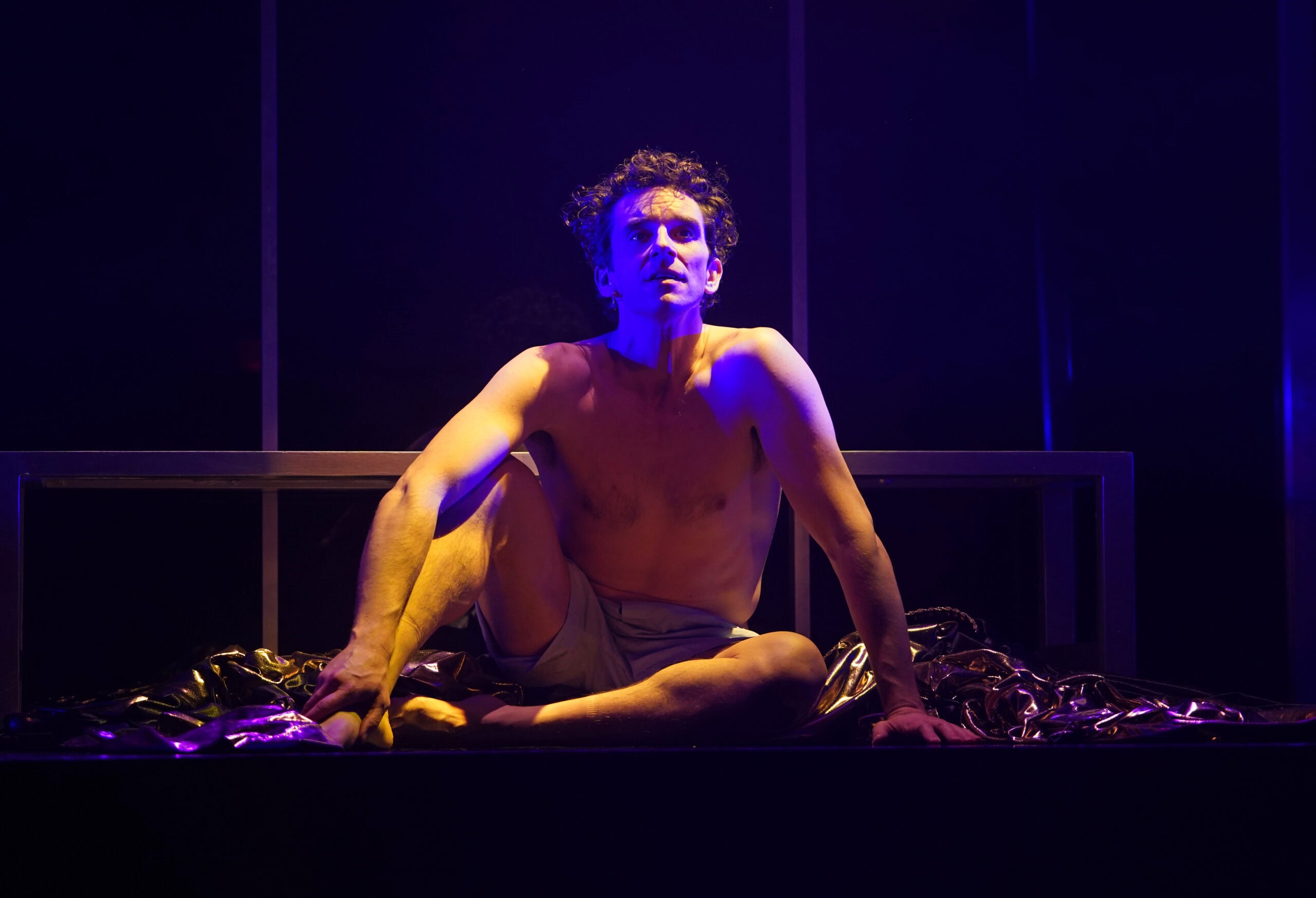
“Richard II” at the Astor Place Theatre (Photo: Carol Rosegg)
Modern, bold renderings of Shakespeare always risk losing touch with the text. They occasionally take for granted that Shakespeare will stand on his own while the production lets its imagination run free. Such shows are often tedious. But so much shallowness is not assured whenever a director offers an unexpected contemporary vision for a script that is now over four centuries old. Sometimes the modernity of the presentation reveals the script and its characters in a new, enlightening depth.
Happily, director Craig Baldwin and the Red Bull Theater have achieved this latter result with a Richard II that leverages its chic, modern trappings to offer a striking vision of Shakespeare’s most poetic king. Behind a wonderful lead performance by Michael Urie, the show probes the warm interiority of the beleaguered Richard as juxtaposed against the cold, brutal political calculations of his counterpoint, Henry Bolingbroke.
The first play of Shakespeare’s second tetralogy, Richard II tells the story of the fraught maturation process of Richard from a boy king, tended to and managed by his uncles, into an independent, assertive, but ultimately feckless and ruinous monarch. His great mistake is banishing Bolingbroke and, shortly thereafter, seizing that noble’s rightful inheritance, the dukedom of Lancaster. When Bolingbroke breaks banishment and returns to England to get Lancaster back, the many dukes who fear the king may very well seize their land flock to him. Richard loses all support and Bolingbroke’s quest for Lancaster nets him the crown of England.
And while that is Richard II’s political and historical bones, Baldwin shows himself more interested in the play’s psychological flesh and blood. Set somewhere in the late eighties or early nineties, this England is one defined by Richard’s excess. Big hair, glitzy costumes, cocaine, and fluid sexuality fill out Richard’s world while governing falls to the wayside. The costumes (Rodrigo Muñoz), lights (Jeanette Oi-Suk Yew), Sound (Brandon Wolcott), and scenery (Arnulfo Maldonado) work in harmony to create a bold, flashy world for a king who revels in an aura of fabulousness.
But throughout, Urie’s excellent, probing performance shows the instability of Richard’s early confidence and the depth of his late pain. Urie’s king grows throughout the show to understand himself and his position with more complexity. And so, for example, when Bolingbroke professes that he has returned only for Lancaster, Urie’s biting, sardonic, and direct replies show that the king recognizes exactly what lies between the lines of Bolingbroke’s request, backed as it is with an enormous army. Baldwin has made slight adaptations throughout the script, most notably by starting the show with Richard’s famous Act Five speech about comparing his prison cell to a world, and then flashing back to the play’s failed opening duel. Throughout the show, Urie never leaves the stage, silently watching and reacting to all the action that happens in Richard’s absence.
The result is to suggest the entire endeavor is an exercise in Richard reflecting ruefully on the events that led to his demise. But Richard’s thoughtful interiority also casts Bolingbroke in a strikingly harsh light. Grantham Coleman presents the nobleman as initially confident, but shows in relief of Urie how Bolingbroke grows smug and eventually ruthless in his assent to power.
Richard II counts, without question, as a Shakespearean rarity: the king’s verbose poeticism and the lack of the high drama that we see in other history plays likely frightens away producers and directors. But Baldwin and Urie manage to make all of the king’s verse count. With each metaphor, rhyme, and trippingly delivered meter, Urie brings us further and further into Richard’s evolving interior.
Of course there is no bloody battle here: the war is entirely inside Richard’s psyche as he takes stock of his mistakes, ambitions, responsibilities, and desires. This production succeeds by finding and enlivening that pitched battle.
